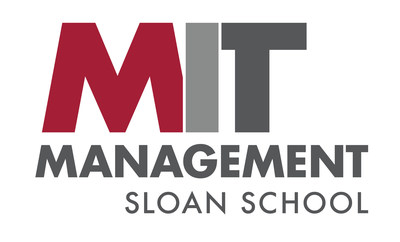Subject: SVY
MIT Sloan study shows potential long-term environmental effects from COVID-19
CAMBRIDGE, Mass., July 9, 2020 /PRNewswire/ -- While the COVID-19 pandemic has reduced air pollution in the U.S., the longer-term impact on the environment is unclear. In a recent study, MIT Sloan School of Management Prof. Christopher Knittel and Prof. Jing Li analyzed the short- and long-term effects, finding that the actual impact will depend on the policy response to the pandemic. Their study suggests that pushing back investments in renewable electricity generation by one year could outweigh the emission reductions and deaths avoided from March through June 2020.
"The pandemic raises two important questions related to the environment. First, what is the short-run impact on fossil fuel consumption and greenhouse gas emissions? Second -- and more important but harder to answer -- what are the longer-term implications from the pandemic on those same variables? The health impacts from the pandemic could stretch out for decades if not centuries depending on the policy response," says Knittel.
Li notes, "Climate change is one of the leading health issues of our time and it's critical to understand the impact of delaying decarbonization efforts because of the pandemic. If the pandemic leads to a persistent global recession, there is a real threat to the adoption of clean technology, which could outweigh any 'silver lining' in environmental benefits."
In their study, the researchers analyzed the short-term impact of the pandemic on CO2 emissions in the U.S. from late March to June 7, 2020. They found a 50% reduction in the use of jet fuel and a 30% reduction in the use of gasoline. The use of natural gas in residential and commercial buildings declined by almost 20% and overall electricity demand declined by less than 10%.
"Overall, these reductions reflect a 15% total reduction in daily CO2 emissions, which is the largest annual percentage decline for the U.S. in recorded history," says Knittel. "We estimate that the shutdowns saved about 200 lives per month, primarily driven by the lower emissions from transportation."
However, the professors point out that the shutdown also halted most investment in the transition to low-carbon energy. Their paper notes that global electric vehicle sales are projected to decline by 43% in 2020 due to fewer auto sales overall combined with low gasoline prices. New residential rooftop solar and storage installations also declined along with energy efficiency audits. And clean energy jobs decreased by almost 600,000 by the end of April.
"The short-term impact of the pandemic is clear, but the long-term impact is highly uncertain," says Li. "It will depend on how long it takes to bring the pandemic under control and how long any economic recession lasts."
The best-case scenario, according to the researchers, is a swift and low-cost strategy to control the virus, allowing the economy to reopen by the end of 2020. In this scenario, investment trends prior to the pandemic will continue.
"Unfortunately, we view a second scenario as more likely," notes Knittel. "In this scenario, the consequences of the pandemic will be greater, with many more deaths and deeper disruptions to supply chains, and a persistent global recession. The need to backpedal on the reopening of the economy due to flare-ups could destroy rather than defer the demand for goods and services."
In this scenario, the long-run impact on CO2 and local air pollutant emissions could outweigh the short-run reductions. The delays in investments in renewables and vehicle fuel economy could lead to an additional 2,500 MMT of CO2 from 2020-2035, which could cause 40 deaths per month on average or 7,500 deaths during that time.
"Our findings suggest that even just pushing back all renewable electricity generation investments by one year would outweigh the emissions reductions and avoided deaths from March to June of 2020. However, the energy policy response to COVID-19 is the wild card that can change everything," they wrote in an article for Joule.
Li explains that budgets will be strained to pay for the costs of the virus, making it challenging to invest in clean energy. And if a recession persists, there may be pressure to lessen climate change mitigation goals. However, stimulus packages could focus on clean energy, increasing clean air, clean jobs, and national security.
"Just stabilizing the economy can go a long way to putting clean energy trends back on track. We need to solve the pandemic and continue to address climate change. Otherwise, it will lead to even more tragedy," adds Knittel.
Li and Knittel are coauthors of "The short-run and long-run effects of COVID-19 on energy and the environment" with Kenneth Gillingham and Marten Ovaere of Yale University and Mar Reguant of Northwestern University. Their paper was published in a June issue of Joule.
About the MIT Sloan School of Management
The MIT Sloan School of Management is where smart, independent leaders come together to solve problems, create new organizations, and improve the world. Learn more at mitsloan.mit.edu.
For further information, contact: | |
Paul Denning | Patricia Favreau |
Director of Media Relations | Associate Director of Media Relations |
617-253-0576 | 617-253-3492 |
SOURCE MIT Sloan School of Management
These press releases may also interest you
|
News published on and distributed by:




